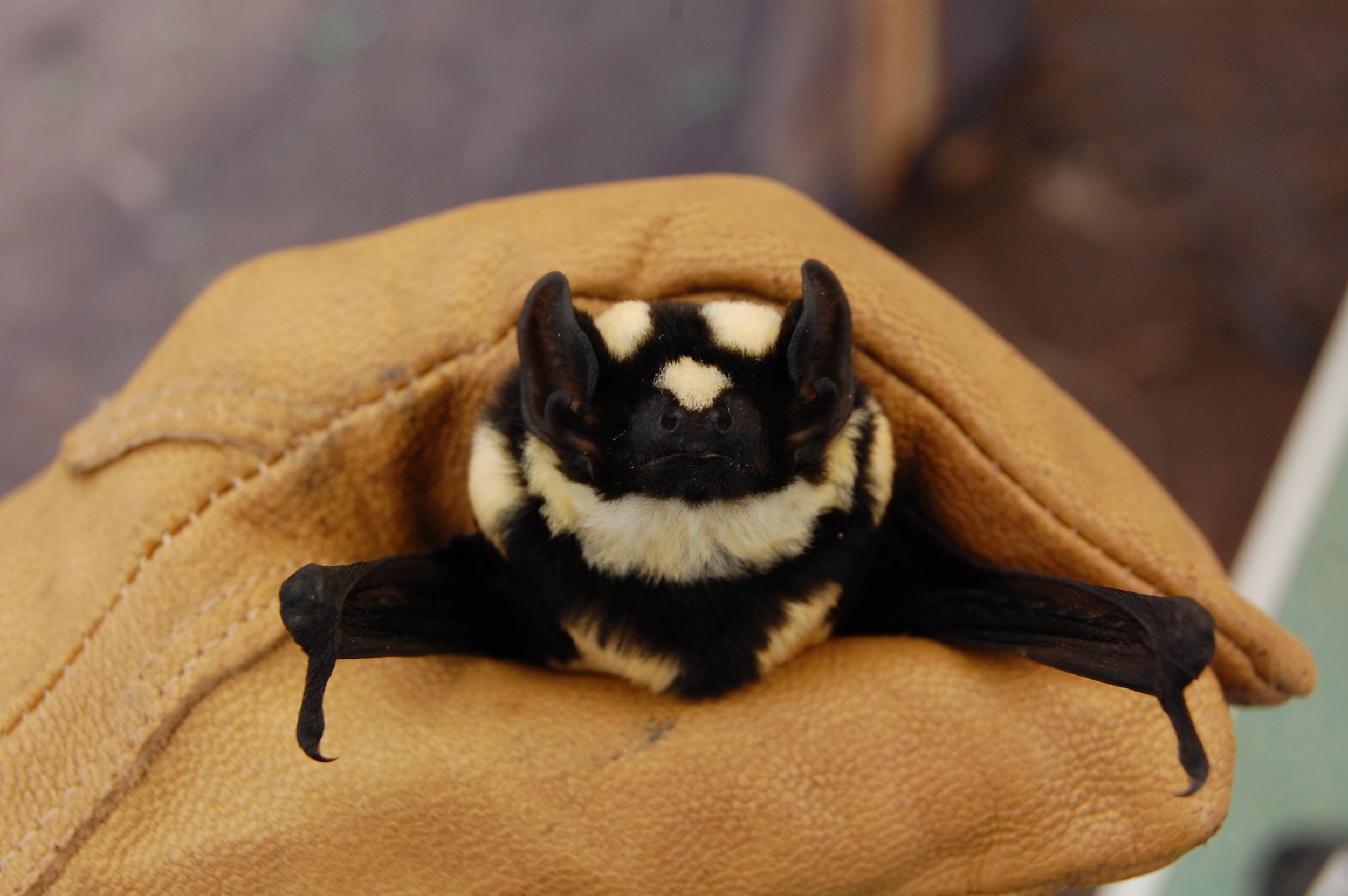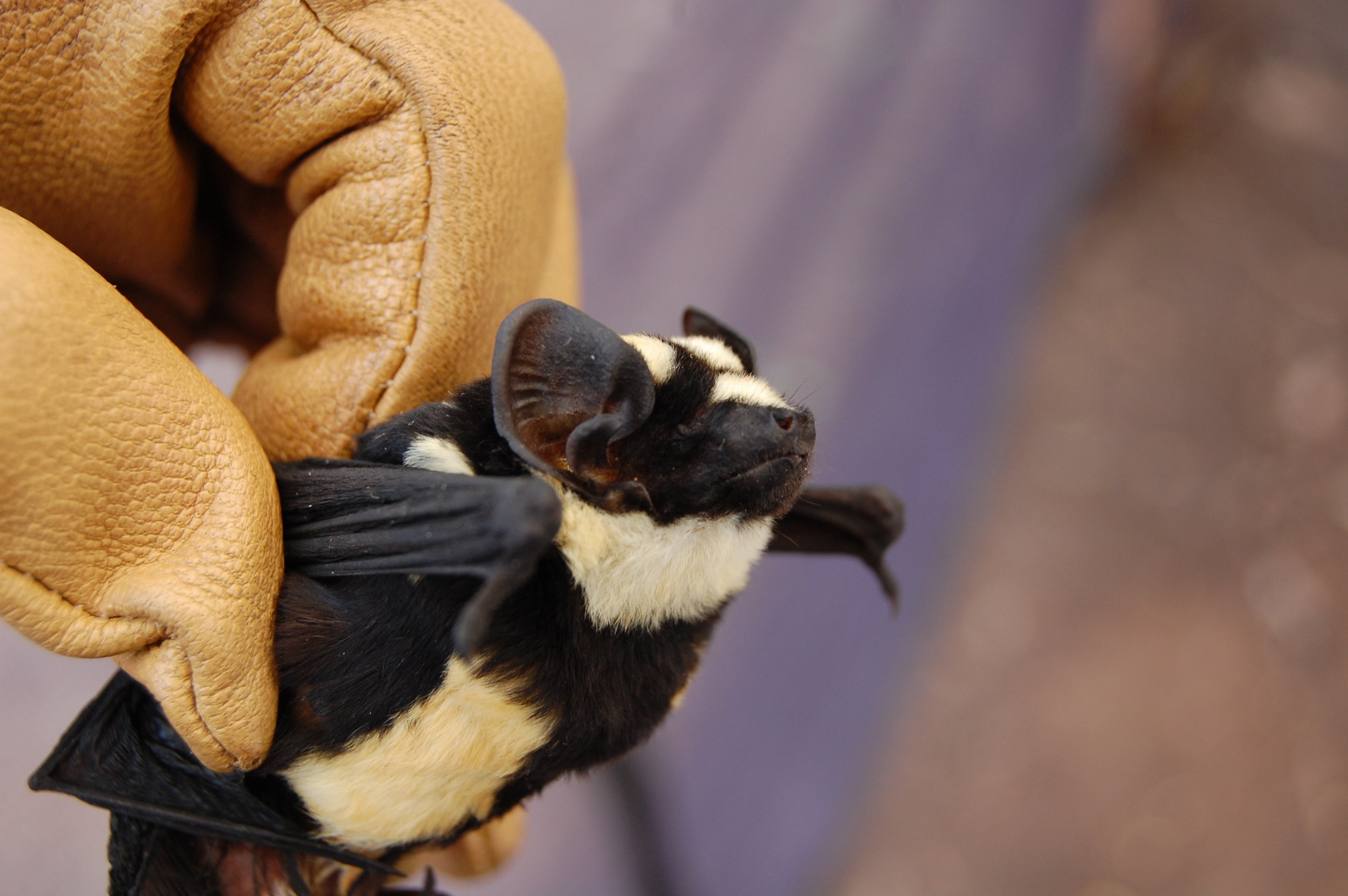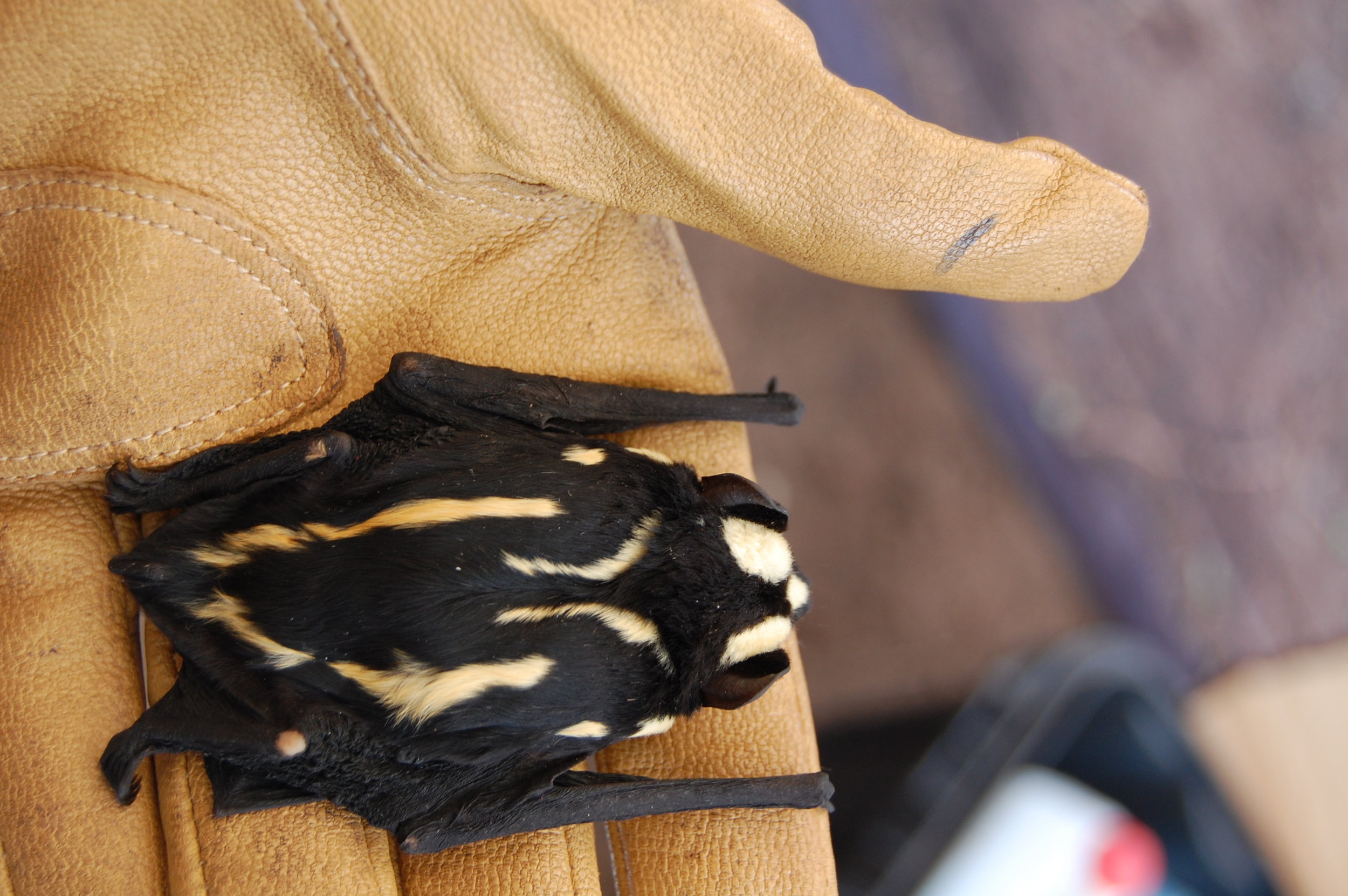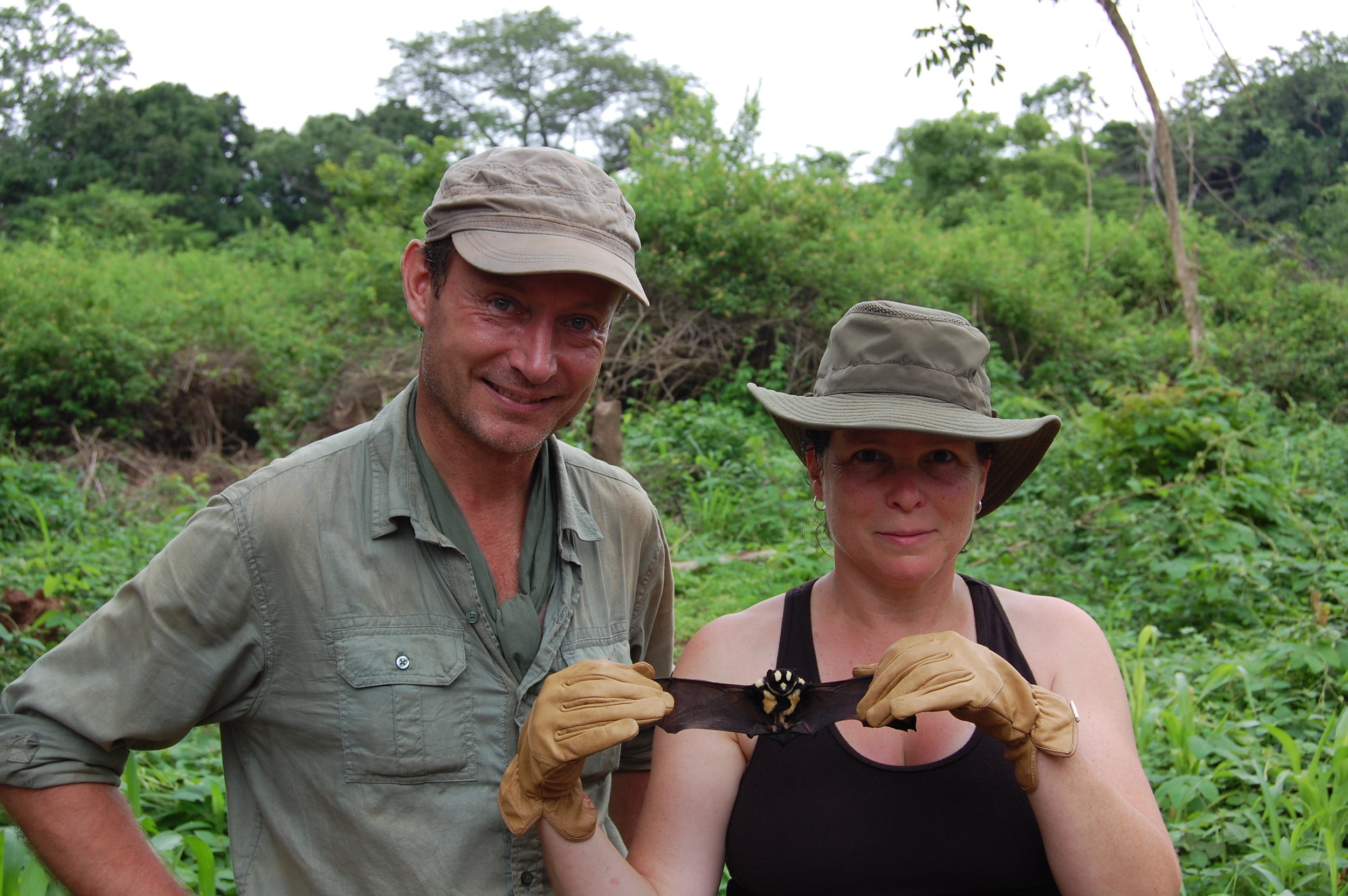Beautiful New Bat Discovered in South Sudan
 This is a special bat, and not just because of its strikingly beautiful spots and stripes. This is a rare specimen, whose discovery in South Sudan led researchers to identify a new genus of bat. The bat is just the fifth specimen of its kind ever collected.
This is a special bat, and not just because of its strikingly beautiful spots and stripes. This is a rare specimen, whose discovery in South Sudan led researchers to identify a new genus of bat. The bat is just the fifth specimen of its kind ever collected. The distinctly patterned bat was discovered by researchers from Bucknell University and Fauna & Flora International during a field research expedition with wildlife authorities in South Sudan.DeeAnn Reeder, an Associate Professor of Biology at Bucknell and first author of the paper announcing the new bat genus, recognized the bat as the same species as a specimen captured in the Democratic Republic of the Congo in 1939. That specimen was classified as Glauconycteris superba, but after detailed analyses she and her colleagues determined it did not belong in the genus Glauconycteris. It was so unique that they needed to create a new genus for it.Reeder and her colleagues named the new genus Niumbaha, which means "rare" or "unusual" in Zande, the language spoken in Western Equatoria State, where the bat was captured. The bat's full scientific name is Niumbaha superba, reflecting both the rarity and the magnificence of this creature.
The distinctly patterned bat was discovered by researchers from Bucknell University and Fauna & Flora International during a field research expedition with wildlife authorities in South Sudan.DeeAnn Reeder, an Associate Professor of Biology at Bucknell and first author of the paper announcing the new bat genus, recognized the bat as the same species as a specimen captured in the Democratic Republic of the Congo in 1939. That specimen was classified as Glauconycteris superba, but after detailed analyses she and her colleagues determined it did not belong in the genus Glauconycteris. It was so unique that they needed to create a new genus for it.Reeder and her colleagues named the new genus Niumbaha, which means "rare" or "unusual" in Zande, the language spoken in Western Equatoria State, where the bat was captured. The bat's full scientific name is Niumbaha superba, reflecting both the rarity and the magnificence of this creature. "Our discovery of this new genus of bat is an indicator of how diverse the area is and how much work remains," Reeder said in a press release. "Understanding and conserving biodiversity is critical in many ways. Knowing what species are present in an area allows for better management. When species are lost, ecosystem-level changes ensue. I'm convinced this area is one in which we need to continue to work."All photos courtesy of Bucknell University/DeeAnn Reeder.Reference: Reeder, D.M., Helgen, K.M., Vodzak, M.E., Lunde, D.P. and Ejotre, I. (2013) A new genus for a rare African vespertilionid bat: insights from South Sudan. ZooKeys 285: 89. doi: 10.3897/zookeys.285.4892
"Our discovery of this new genus of bat is an indicator of how diverse the area is and how much work remains," Reeder said in a press release. "Understanding and conserving biodiversity is critical in many ways. Knowing what species are present in an area allows for better management. When species are lost, ecosystem-level changes ensue. I'm convinced this area is one in which we need to continue to work."All photos courtesy of Bucknell University/DeeAnn Reeder.Reference: Reeder, D.M., Helgen, K.M., Vodzak, M.E., Lunde, D.P. and Ejotre, I. (2013) A new genus for a rare African vespertilionid bat: insights from South Sudan. ZooKeys 285: 89. doi: 10.3897/zookeys.285.4892